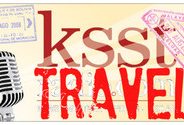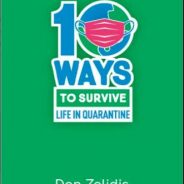Yantis ISD Outstanding Athletes Recognized
While Yantis ISD was able to hold an athletic banquet this year due to COVID-19, several students have still earned recognition for their hard work and accomplishments. Yantis ISD outstanding athletes were announced by Athletic Director Mike McMinn, along with students earning All District Softball honors.

First Team All District honors in softball went to Yesenia Macias, Victoria Macias, Emily Worley and Macie Starrett. Worley also was named YISD softball MVP.
Receiving Second Team All District recognition in softball were Briana Swaim, Evelyn Angel and Brooke Barrett. Angel also was named YISD Offensive MVP in girls basketball.
Yesenia Macias, Macie Starrett and Brooke Barrett were recognized for Academic All District honors. Macie Starrett shared named Co-Outstanding Defensive Player honors in softball with Yesenia Macias and Co-Defensive Player MVP in girls basketball with Victoria Macias.
Yesenia Macias too earned the Fighting Heart Award while Victoria Macias was named Outstanding Offensive Players in softball.
In volleyball, Macie Rodriquez was named YISD Outstanding Hitter and Mackenzie Francisco as Outstanding Setter.
In cross country, Bryleigh Hurley was named YISD 2020 Outstanding Runner.
Carlos Lopez was named Offensive MVP, Elgin Curry Defensive MVP and Deven Lutz Outstanding Rebounder in boys basketball.
Seth Vivion was named YISD baseball MVP. Keith Kenemore was named Outstanding Offensive Player and Samuel Schlagel as Outstanding Defensive Player.

Ten Tips For Eating Healthy On A Budget

Even when you know what healthy foods to choose, being able to pay for them can be hard, especially if you are on a fixed income. Start by deciding how much you can afford to spend on food. There are websites that can help you plan a food budget. For example, the U.S. Department of Agriculture supports Iowa State University’s Spend Smart-Eat Smart. This website also has inexpensive recipes based on the Dietary Guidelines.
Once you have a budget, find store ads in the newspaper or grocery store websites to see what is on sale. Try to plan some meals around featured items and pick up some extra canned goods or staples that are on sale. And check the expiration or use-by date. A product might be on sale because it is almost out of date. Choose items with dates farthest in the future.
While shopping, make use of these budget-wise 10 tips.

- Ask about discounts. Ask your local grocery stores if they have a senior discount or a loyalty or discount card.
- Use coupons when you can. Remember, coupons only help if they are for things you would buy anyway. Sometimes, another brand costs less even after you use the coupon.
- Consider store brands—they usually cost less. These products are made under a special label, sometimes with the store name.
- Be aware that convenience costs more. You can often save money if you are willing to do a little work. For example, shred or grate your own cheese, and avoid instant rice or instant oatmeal. Bagged salad mixes cost more and might not stay fresh as long as a head of lettuce.
- Look at unit prices. Those small stickers on the shelves tell you the price but also the unit price — how much the item costs per ounce or per pound. Compare unit prices to see which brand is the best value.
- Try to buy in bulk, but only buy a size you can use before it goes bad. If you buy meat in bulk, decide what you need to use that day and freeze the rest in portion-sized packages right away.
- Focus on economical fruits and vegetables like bananas, apples, oranges, cabbage, sweet potatoes, dark-green leafy vegetables, green peppers, and regular carrots.
- Think about the foods you throw away. For less waste, buy or cook only what you need.
- Resist temptations at the check-out. You know what I’m talking about — those snack foods and candy are put there for impulse buying. Save money and avoid empty calories!
- Sign up for meal delivery. There are a variety of groups around the country that deliver meals to people who have trouble getting out of their homes. These groups usually offer one hot meal a day. In Hopkins County, we have the Meal-A-Day program (for senior citizens
The National Institute on Aging has a wealth of information. Check out their website at https://www.nia.nih.gov.
Closing Thought
Don’t let yesterday take up too much of today. – Will Rogers
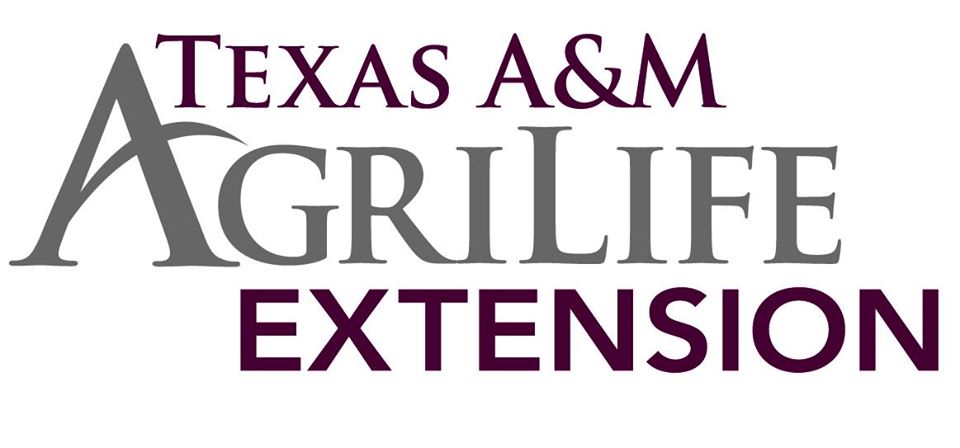
Paris District Road Report for the Week of May 18, 2020
Paris — Here’s a look at work planned in the district during the week of May 18, 2020. These schedules are subject to change due to weather conditions, equipment failure or other unforeseen issues.
Motorists are advised to remain alert and pay special attention to all signs, barricades and traffic controls, and reduce their speed as they approach and travel through work zones. They should also avoid distractions such as cell phones, eating, drinking, or car audio or navigation systems.
Sherman Area (Fannin, Grayson Counties)
Contacts: Sherman Area Office (903) 892-6529; Grayson Co. Maintenance (903) 893-8831; Fannin Co. Maintenance (903) 583-7566.
US 75, Grayson County: from FM 1417 to SH 91 (Texoma Parkway). Watch for shoulder closures and lane shifts on northbound and southbound US 75 between Center Street and FM 1417 as crews work on building new main lanes. Watch for occasional daytime lane closures on the frontage roads between FM 1417 and Washington Street as crews work on installing temporary signals and building detours. A reduced speed limit of 60 mph has been set for this construction project.
FM 1417, Grayson County: from US 82 to SH 56. Watch for daytime lane closures between US 82 and SH 56. Crews will be performing utility work as well as constructing a portion of the new Sand Creek bridge. A reduced speed limit of 45 mph has been set for this construction project.
FM 1417, Grayson County: at the OB Groner / West Travis St. intersection. Watch for shoulder closures as crews work on widening the roadway to add turn lanes.
FM 691, Grayson County: from FM 131/Loy Lake Road to US 75. Watch for traffic shifts as workers widen FM 691 to an ultimate five-lane roadway. The intersection of FM 691 with FM 131/Loy Lake Road has been converted to a four-way stop intersection and will become a signalized intersection at the conclusion of the construction project.
FM 121, Grayson County: from Jim Jones Road to FM 3356. Watch for daytime lane closures as crews work to widen the roadway to provide a detour section. The ultimate roadway will be a five-lane section at the conclusion of the project.
US 377, Grayson County: Willis Bridge at the Oklahoma State line. Watch for occasional lane closures on the existing bridge as workers pour concrete for the new bridge structure.
US 75 Ramp Reversal in Denison, Grayson County: on the southbound US 75 main lanes and frontage road between Spur 503 and FM 691. Watch for a lane closure on the southbound US 75 frontage road as well as the westbound Spur 503 ramp while construction crews work on building the new southbound US 75 exit ramp for FM 691. During this phase, westbound Spur 503 to southbound US 75 traffic must use the frontage road through the FM 691 intersection and then enter southbound US 75 using the on ramp after FM 691.
US 75 Slope Repair at Randell Lake Road, on the southbound US 75 frontage road between SH 91 and Randell Lake Road, Grayson County: on the southbound US 75 frontage road between SH 91 and Randell Lake Road. The southbound frontage road and Randell Lake exit ramp are closed due to a slope failure. Crews are working to lime treat the soils and place underdrains.
US 75 debris pickup, Grayson County: from Collin County line to Oklahoma State line. Watch for mobile lane closures as workers pick up debris from the roadway every Monday, Wednesday, and Friday during the daytime.
US 82 & US 69, Grayson County: from FM 131 to FM 1897 on US 82, and from SH 56 to US 75 on US 69. Watch for temporary daytime lane closures and shoulder closures as workers install safety treatments on fixed objects.
SH 56, Grayson County: between FM 1417 to the Fannin County Line. Watch for daytime lane closures as maintenance crews work to blade level the roadway.
FM 406, Grayson County: between SH 289 and FM 84. Watch for daytime lane closures as maintenance crews work to blade level the roadway.
SH 289, Grayson County: between FM 121 and FM 902. Watch for daytime lane closures as maintenance crews work on base repairs.
FM 1753, Grayson and Fannin County: from FM 1897 to SH 78. Watch for temporary one-lane closures as workers rehab and widen the roadway.
FM 898, Fannin County: from the Grayson County line to SH 121. Watch for temporary one-lane closures as workers rehab and widen the roadway.
FM 2815, Fannin County: from FM 1629 to SH 11. Watch for temporary one-lane closures as workers rehab and widen the roadway.
FM 1743, Fannin County: from SH 56 to FM 1550. Watch for temporary one-lane closures as workers rehab and widen the roadway.
US 82, Fannin County: from SH 121 to the Lamar County Line. Watch for slow moving construction equipment as crews work on widening US 82 from a two lane roadway to a four lane divided section. Watch for a traffic shift near the SH 56 intersection in Honey Grove as crews work to build the new westbound lanes. Westbound traffic is being shifted to the eastbound side during this period. Watch for new exit ramps and entrance ramps near the FM 100 intersection.
FM 274, Fannin County: from SH 78 to FM 3321. Watch for daytime lane closures as crews work on performing base repairs.
SH 78, Fannin County: from Oklahoma State line to CR 1125. Watch for daytime lane closures as crews work on performing base repairs.
County Road 2998, Fannin County: at Cottonwood Creek. County Road 2998 is closed in order for crews to remove the existing bridge and build a new bridge. Traffic on CR 2998 will need to use an alternate route during construction.
County Road 5060, Fannin County: at Lee Creek. County Road 5060 is closed in order for crews to remove the existing bridge and build a new bridge. Traffic on CR 5060 will need to use an alternate route during construction.
FM 897, Fannin County: from US 82 to CR 2950 in Lannius. Watch for daytime lane closures as maintenance crews work on sealing the roadway.
SH 56, Fannin County: from the Grayson County line to SH 121. Watch for daytime lane closures as maintenance crews work to blade level the roadway.
Sulphur Springs Area (Hopkins, Franklin Counties):
Contacts: Sulphur Springs Area Office (903) 885-9514; Franklin Co. Maintenance (903) 537-4976; Hopkins Co. Maintenance (903) 885-4031.
SH 11, Hopkins County: From SH 19 to White Oak Creek. Watch for lane closures and short traffic delays as crews perform road rehabilitation operations.
SH 11, Hopkins County: From 1.5 miles east of FM 3134 to 0.82 miles east of FM 2653. Watch for lane closures and short traffic delays as crews perform milling operations.
FM 1448, Franklin County: From Wood County Line to FM 115. Watch for lane closures and short traffic delays as crews install drainage structures.
IH 30, Hopkins & Franklin Counties: From Titus County Line to Hunt County Line. Watch for lane closures and short traffic delays as crews upgrade metal beam guard fence.
Paris Area (Delta, Lamar, Red River Counties)
Contacts: Paris Area Office (903) 784-1357; Delta Co. Maintenance (903) 395-2139; Lamar Co. Maintenance (903) 785-4468; Red River Co. Maintenance (903) 427-3561.
BU 271D, Red River County: from US 271 to State Spur 38 (Bogata). Watch for temporary lane closures while crews install new end treatments on drainage structures.
SH 37, Red River County: from US 271 (Bogata) to Franklin County Line. Watch for daytime lane closures as crews mill existing pavement and level up shoulders with hot mix.
US 82, Red River County: from FM 1159 to Bowie County Line. Traffic will be shifted to south side of existing roadway between FM 44 and FM 1699 while crews begin pavement widening on the north side.
US 271, Lamar County: from FM 1499 to Oklahoma State Line. Watch for temporary shoulder and lane closures while crews upgrade metal beam guard fence. An overnight lane closure will be in place at the Red River bridge.
SH 37 safety upgrades, Red River County: from the Texas-Oklahoma state line south to the Red River-Franklin County line. Watch for work zones as workers upgrade metal-beam guard fence, replace or extend new structures and install safety end treatments.
Greenville Area (Hunt, Rains Counties)
Contacts: Greenville Area Office (903) 455-2363; Hunt Co. Maintenance (903)455-2303; Rains Co. Maintenance (903) 473-2682.
SH 276, Hunt County: at Bull Creek, rip-rap repair project. The contractor has finished this project. Contractor crews are performing final removal of perimeter signs on this project. Please be careful when traveling in the area.
SPUR 264, Hunt County: in Quinlan. Sidewalk improvement project. The contractor is currently seeding and watering, sidewalk construction is complete. Please be careful when traveling in the area and watch out for workers.
Hunt County maintenance crews are working on repairing pot holes throughout Hunt County. Please be careful when driving in areas where our work vehicles are present. Crews are also working on sealcoat preparation.
Debris and litter operations are ongoing throughout multiple parts of the county. Please be careful when traveling, and watch out for workers.
###
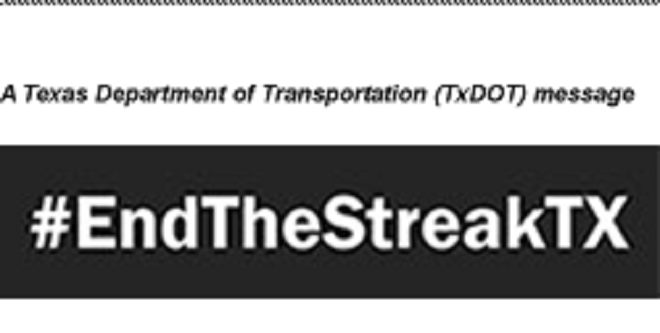
Como Teen’s Arrest Friday Marked His 2nd Trip To Jail In 3 Months
A Como teen’s arrest Friday marked the second time in three months the 18-year-old has been jailed in Hopkins County for controlled substance possession, according to arrest reports.

Sulphur Springs Police Officer Adrian Pruitt initiated a traffic stop on a Chrysler 200 just after 4 p.m. May 15 in the 1500 block of College Street. Pruitt alleged both the driver and passenger appeared extremely nervous when contacted. The driver reportedly gave the officer permission to search the white car.
After the search, Pruitt spoke with the passenger, an 18-year-old Como resident, who he noted continued to appear “extremely nervous.” The teen admitted to having illegal narcotics inside of his pants, then retrieved a bag containing a white powdery substance suspected to be cocaine, Pruitt alleged in arrest reports.
The teen, identified in arrest reports as Bryer Ray Parnell, was taken into custody and transported to the county jail, where he was released to jail staff. A search of the teen by jail staff allegedly revealed another bag containing a crystal-like substance suspected to be methamphetamine.
Parnell was arrested on two possession of less than 1 gram of a Penalty Group 1 controlled substance charges, according to arrest reports. He remained in Hopkins County jail Saturday morning, May 16. Bond was set at $5,000 per charge.
The arrest marked the second time in 3 months that Parnell has been arrested locally on a controlled substance charge, according to jail reports.
He was also arrested Feb. 23, 2020 by Hopkins County Sheriff‘s deputies for possession of 1 gram or more but less than 4 grams of a Penalty Group 2 controlled substance, after claiming a bag of Ecstasy pills found in a vehicle curing a traffic stop, according to arrest reports. He spent Feb. 23-25 in the county jail, before being released on a $10,000 bond on the Penalty Group 2 charge, according to jail reports.
KSSTRadio.com publishes Sulphur Springs Police Department reports and news. The Police Department is located at 125 Davis St., Sulphur Springs, Texas. Non-emergency calls can be made to (903) 885-7602.
If you have an emergency dial 9-1-1.
The Sulphur Springs Police Department continues to serve its citizens with pride in its overall mission and will strive to provide the best possible police force in the 21st century.
If you have an emergency, dial 9-1-1
The Hopkins County Sheriff’s Office is located at 298 Rosemont Sulphur Springs, TX 75482. You can reach them for non-emergency matters at (903) 438-4040.
SSFD Begins New Role In COVID-19 Prevention Efforts

Sulphur Springs Fire Department begins a new role in COVID-19 prevention efforts today. SSFD and Hopkins County EMS officials are partnering to help ensure the health safety of nursing home patients and staff by conducting testing and infection control inspections at facilities in Sulphur Springs.
SSFD, like other fire departments across the state, was notified earlier this week through Texas Commission on Fire Protection that they would be called upon for these tasks set by the state as part of the expanded measures to ensure public safety and eventually re-open all areas of Texas still closed due to COVID-19 pandemic.
SSFD Chief David James and Hopkins County Hospital District COO/EMS Director Brent Smith have been working together to coordinate efforts to achieve these goals.
While the fire department conducts regular building inspections, SSFD doesn’t typically perform infection control inspections at facilities. Infection control and decontamination are in their wheelhouse. They may encounter infection and decontamination situations while responding to rescue situations, medical or other emergency calls, but firefighters don’t typically deal with them at this level.
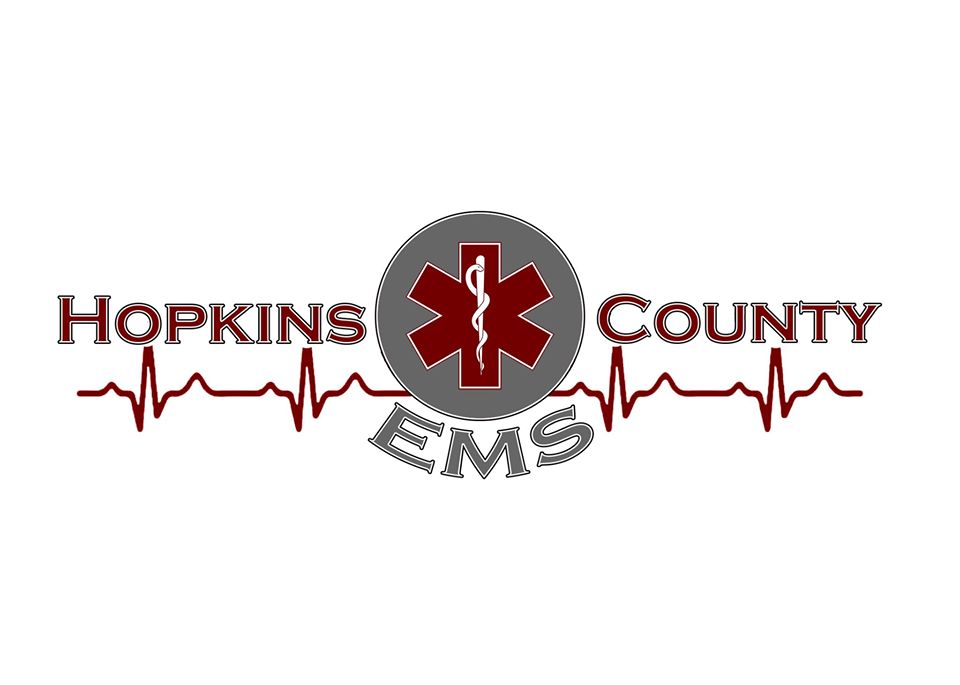
SSFD’s two assistant fire marshals begin conducting inspections at four licensed nursing home facilities in Sulphur Springs starting today (Saturday, May 16, 2020), according to the SSFD chief.
“To limit access, only these two guys will be conducting inspections. We are limiting who is going in, not only for our safety but that of the residents,” James said Friday.
The inspections will be intensive. The SSFD fire marshals will be working from a document of instructions that is approximately 40 pages in length. The inspection check list and report form is 15-20 pages long.
The fire marshals based on their findings will be able to make suggestions if they see areas for potential improvement to reduce potential of cross contamination or other prevention measures in daily operations at nursing homes.
Once completed, the reports will go to Texas Commission on Fire Protection, for review by state officials.
These are part of the efforts officially announced by Texas Governor Greg Abbott and the Texas Division of Emergency Management Friday. Abbott and TDEM reported hat local fire departments and local public health authorities are to partner tot provide testing in nursing homes throughout the state.
This partnership plan was developed and is being implemented through ongoing collaborations between TDEM, the TCFP, Texas Health and Human Services Commission and the Texas Department of State Health Services. Costs associated with providing these tests are eligible for federal reimbursement, according to Governor’s Office.
“This partnership builds upon our efforts to expand COVID-19 testing in the Lone Star State, especially among our most vulnerable Texans,” said Governor Greg Abbott. “I thank our local fire departments for continuing to serve their fellow Texans throughout the COVID-19 response. By serving their communities in this new capacity, we will continue to contain the spread of this virus and protect the health and safety of all Texans.”
SSFD is focusing on inspection of the facilities, but will help otherwise, if needed, according to James.
Testing of all staff and residents of nursing homes in the city for COVID-19, will be coordinated locally by HCHD COO/EMS Director Brent Smith.
Local Officers Arrested Four People Wanted On Felony Charges
May 15, 2020 – During the past two days, local officers arrested four people wanted on felony charges, according to arrest and sheriff’s reports.
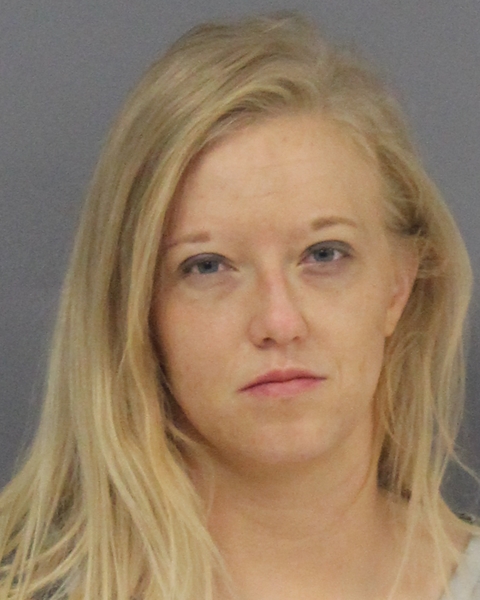
Sulphur Springs Police Officer Tyler Francis responded Thursday, May 14, to a reported theft at Walmart. A records check revealed an outstanding Wood County warrant for Falon Leann Honea‘s arrest, according to police reports.
Francis took the 33-year-old Yantis woman into custody at 5:20 p.m. on the possession of less than 1 gram of a Penalty Group 1 controlled substance in a drug free zone warrant. Honea remained in Hopkins County jail until May 15. Bond was set at $50,000 on the third-degree felony charge, according to jail reports.

Hopkins County Sheriff‘s Cpl. Todd Evans and Deputy Jason Lavender took Zack Atwood Merrill into custody at 4:25 p.m. May 14 on a warrant for violation of probation, which he was on for tampering with evidence.
Merrill remained in Hopkins County jail Friday, May 15, on the charge, according to jail reports.
The May 14 arrest marks the third time Merrill has been jailed in Hopkins County for violating probation on the charge, according to jail records. He spent Dec. 21, 2018 through Feb. 4, 2019 and from Oct. 17, 2019 through Jan. 30, 2020 in Hopkins County jail for violation of probation on the March 2017 tampering with evidence charge, according to jail reports. He was indicted in April 2017 on the tampering with evidence charge.

Hopkins County Sheriff’s Chief Investigator Corley Weatherford stopped a truck for a traffic violation on Bill Bradford Road at South Broadway Street May 14. The passenger, 30-year-old Jeremy Randall Hill, was found to be wanted. Weatherford arrested the Sulphur Springs man at 1:10 a.m. for violation of probation, which he was on for burglary of a motor vehicle with two previous convictions, according to arrest reports. Hill remained in Hopkins County jail Friday, May 15, on the felony charge, according to jail reports.
Hill’s criminal history includes multiple felony charge. Most recently, he was arrested April 3, 2018, on three burglary of a vehicle warrants, as well as a theft and violation of parole warrant; he remained in the county jail April 3-July 12, 2018 on the charges. He too was arrested July 11, 2019, for burglary of vehicle with two previous convictions, remaining in Hopkins County jail until Oct. 24, 2019, according to jail reports.

HCSO Deputy Chris Baumann stopped a Toyota Camry at 9:49 p.m. May 13 on State Highway 19 south at County Road 1170 for a defective tail light. A records showed 31-year-old David Eric Townsend to be wanted by Henderson County authorities. The Brashear man was taken into custody and jailed on the outstanding criminal nonsupport-child support charge, according to arrest reports. Townsend remained in Hopkins County jail until Thursday, May 14; bond was set at $500 on the charge, according to jail reports.
If you have an emergency, dial 9-1-1
The Hopkins County Sheriff’s Office is located at 298 Rosemont Sulphur Springs, TX 75482. You can reach them for non-emergency matters at (903) 438-4040.
KSSTRadio.com publishes Sulphur Springs Police Department reports and news. The Police Department is located at 125 Davis St., Sulphur Springs, Texas. Non-emergency calls can be made to (903) 885-7602.
If you have an emergency dial 9-1-1.
The Sulphur Springs Police Department continues to serve its citizens with pride in its overall mission and will strive to provide the best possible police force in the 21st century.
If you have an emergency, dial 9-1-1
The Hopkins County Sheriff’s Office is located at 298 Rosemont Sulphur Springs, TX 75482. You can reach them for non-emergency matters at (903) 438-4040.
The Global Pandemic Shut Down Travel But When Would You Feel Comfortable Traveling Again?
At KSST, we love traveling. Whether by planes, trains, or automobiles, a lot of us just love to GO somewhere. But then a worldwide pandemic hits, and cruises are cancelled, airlines stop flying, and rental car companies are on the verge of bankruptcy. Each week brings restart dates for travel being pushed back later and later and those that have had trips cancelled continue to battle for refunds.
Obviously, it will take time before we can all feel comfortable with all kinds travel again, and it won’t be long before some form of travel will be acceptable. But only time will tell when we can start to even take a driving trip, much less plan long trips to far off places. We may have different opinions of if and when it will be safe to travel, so please share your thoughts by answering the poll below.
[poll id=”139″]

Wood County Sheriff’s Report For May 5-12, 2020
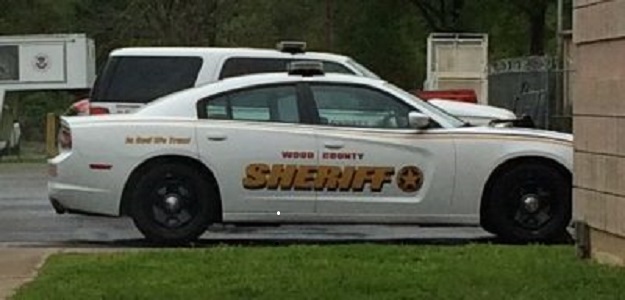
May 5
Deputies were dispatched to Walnut St. in Yantis, at approximately 12:46 a.m., in reference to a reckless driver. Deputies searched the area, but were unable to locate the vehicle.
At 5:05 a.m., cows were reported out on FM 69 near Quitman.
Deputies were dispatched to FM 778 near Mineola, at approximately 6:51 a.m., in reference to criminal mischief. Actors, or actors unknown, damaged the reporting party’s property.
Deputies were dispatched to PR 7855 near Hawkins, at approximately 10:29 a.m., in reference to criminal mischief. Actors, or actors unknown, damaged the reporting party’s property. This case has been forwarded to investigators.
Deputies were dispatched to CR 1971 near Yantis, at approximately 10:54 a.m., in reference to an inquest. A male, 70, was found deceased in his residence. The Justice of the Peace arrived and no autopsy was ordered.
Deputies were dispatched to FM 1801 near Mineola, at approximately 11:56 a.m., in reference to a dispute. Deputies made contact with the individual and cleared the incident.
Deputies responded to a suspicious person on CR 3450 near Hawkins, at approximately 2:30 p.m. Deputies made contact with the reporting party and advised there would be extra patrol in the area.
Deputies were dispatched to CR 4990 near Winnsboro, at approximately 3:44 p.m., in reference to a welfare check. Deputies located the individual and cleared the incident.
Deputies were dispatched to CR 2298 near Mineola, at approximately 6:25 p.m., in reference to an alarm. Deputies made contact with an individual and everything was OK.
At 8:44 p.m., cows were reported out on FM 69 near Quitman.
Deputies were dispatched to PR 6624 near Mineola, at approximately 9:15 p.m., in reference to suspicious circumstances. Deputies searched the area, but were unable to locate any suspicious activity.
Deputies responded to a suspicious person on FM 2869 near Hawkins; at approximately 10:08 p.m. Deputies located the individual and cleared the incident.
Deputies were dispatched to CR 3277 near Quitman, at approximately 10:20 p.m., in reference to shots fired. Deputies made contact with the individuals and they advised they would stop shooting.
May 6
Deputies responded to a suspicious vehicle on FM 182 near Quitman; at approximately 3:32 a.m. Deputies located the vehicle and cleared the area.
At 7:16 a.m., horses were reported out on FM 1804 near Mineola.
Deputies responded to a suspicious vehicle on HWY 69 near Mineola; at approximately 10:38 a.m. Deputies located the vehicle and cleared the incident.
Deputies were dispatched to CR 2320 near Mineola, at approximately 11:06 a.m., at approximately 11:06 a.m., in reference to theft. A known actor stole the reporting party’s wallet. This case has been forwarded to investigators.
Deputies were dispatched to CR 2121 near Quitman, at approximately 12:20 p.m., in reference to criminal mischief. A known actor damaged the reporting party’s vehicle. Deputies issued a Criminal Trespass Warning. This case was forwarded to investigators.
Deputies responded to a suspicious person on FM 312 near Winnsboro; at approximately 1:18 p.m. Deputies searched the area, but were unable to locate the individual.
At 1:55 p.m., cows were reported out on CR 2427 near Mineola.
At 4:25 p.m., cows were reported out on FM 1254 near Mineola.
Deputies spoke with the reporting party, at approximately 5:10 p.m., in reference to credit/debit card abuse on Oak Hollow Lane near Hawkins. Actors, or actors unknown, used the reporting party’s debit/credit card without authorization. This case is active.
Deputies were dispatched to PR 7829 near Hawkins, at approximately 8:51 p.m., in reference to an assault. Clifford France, III, 55, of Hawkins, was arrested for Assault Causes Bodily Injury Family Violence.
Deputies responded to a suspicious vehicle on CR 2315 near Mineola; at approximately 9:59 p.m. Deputies located the vehicle and cleared the incident.
May 7
Deputies spoke with the reporting party, at approximately 8:40 p.m., in reference to terroristic threat on CR 3448 near Hawkins. Deputies issued a Criminal Trespass Warning and cleared the incident.
Deputies were dispatched to FM 49 near Mineola, at approximately 10:08 a.m., in reference to criminal mischief. Actors, or actors unknown, damaged the reporting party’s mailbox.
At 1:00 p.m., horses were reported out on CR 1913 near Yantis.
Deputies were dispatched to HWY 37 near Winnsboro, at approximately 2:16 p.m., in reference to a welfare check. Deputies located the individual and cleared the incident.
Deputies spoke with the reporting party, at approximately 2:44 p.m., in reference to harassment on Geronimo near Quitman. Deputies gave the reporting party advice and cleared the incident.
Deputies were dispatched to HWY 37 near Winnsboro, at approximately 3:31 p.m., in reference to a welfare check. Deputies searched the area, but were unable to locate the individual.
Deputies spoke with the reporting party, at approximately 6:59 p.m., in reference to terroristic threat on CR 4575 near Winnsboro. Deputies gave the reporting party advice and cleared the incident.
Deputies were dispatched to FM 49 near Mineola, at approximately 10:30 p.m., in reference to a possible assault. Joe McClenny, 40, of Mineola, was arrested for an outstanding warrant.
May 8
Deputies were dispatched to CR 1973 near Yantis, at approximately 12:20 a.m., in reference to an alarm. Deputies checked the building and it was secure.
Deputies were dispatched to CR 3875 near Mineola, at approximately 12:55 a.m., in reference to an alarm. Deputies checked the area and determined the alarm was set due to the weather.
Deputies were dispatched to FM 2088 near Winnsboro, at approximately 4:38 a.m., in reference to an abandoned vehicle. Deputies located the vehicle and cleared the incident.
Deputies were dispatched to CR 1944 near Yantis, at approximately 4:52 a.m., in reference to an alarm. Deputies checked the building and it was secure.
Deputies were dispatched to CR 1670 near Alba, at approximately 11:44 a.m., in reference to a welfare check. Deputies located the individual and everything was OK.
Deputies were dispatched to CR 1944 near Yantis, at approximately 1:44 p.m., in reference to an alarm. Deputies checked the building and it was secure.
At 2:48 p.m., cows were reported out on CR 1280 near Quitman.
Deputies spoke with the reporting party, at approximately 2:49 p.m., in reference to an unauthorized use of a motor vehicle on CR 1545 near Alba. A known actor took the vehicle from the reporting party’s property without authorization. The vehicle was later located and the incident was cleared.
Deputies were dispatched to CR 2560 near Mineola, at approximately 4:11 p.m., in reference to theft. Actors, or actors unknown, stole an ATV from the reporting party’s property. This case is forwarded to investigators.
At 5:21 p.m., cows were reported out on HWY 515 near Yantis.
Deputies were dispatched to HWY 37 near Winnsboro, at approximately 5:40 p.m., in reference to a dispute. Deputies located the individuals and cleared the incident.
Deputies responded to a suspicious person on CR 3920 near Hawkins; at approximately 6:02 p.m. Deputies located the individual and cleared the incident.
Deputies were dispatched to CR 1441 near Quitman, at approximately 6:55 p.m., in reference to a noise complaint. Deputies searched the area, but were unable to locate any activity.
Deputies were dispatched to PR 7865 near Hawkins, at approximately 7:40 p.m., in reference to suspicious circumstances. Deputies searched the area, but were unable to locate any suspicious activity.
Deputies were dispatched to CR 3940 near Hawkins, at approximately 8:45 p.m., in reference to a reckless driver. Deputies searched the area, but were unable to locate the vehicle.
May 9
Deputies were dispatched to CR 2320 near Alba, at approximately 1:35 a.m., in reference to a reckless driver. Deputies searched the area, but were unable to locate the vehicle.
Deputies responded to a suspicious person on FM 2869 near Hawkins; at approximately 2:07 a.m. Deputies located the individual and cleared the incident.
At 7:25 a.m., cows were reported out on FM 2869 near Hawkins.
Deputies spoke with the reporting party, at approximately 10:44 a.m., in reference to an unauthorized use of a motor vehicle on FM 17 near Alba. A known actor took the reporting party’s vehicle without authorization. The vehicle was later returned and the incident was cleared.
Deputies spoke with the reporting party, at approximately 2:40 p.m., in reference to criminal mischief on FM 778 near Hawkins. Actors, or actors unknown, damaged the reporting party’s mailbox.
At 6:42 p.m., cows were reported out on HWY 37 near Winnsboro.
Deputies were dispatched to HWY 154 near Quitman, at approximately 7:41 p.m., in reference to a disturbance. Deputies located the individuals and cleared the incident.
Deputies were dispatched to CR 1416 near Quitman, at approximately 9:01 p.m., in reference to a dispute. Deputies spoke with all parties involved and cleared the incident.
Deputies were dispatched to CR 1560 near Alba, at approximately 10:25 p.m., in reference to a noise complaint. Deputies located the individuals and advised them to lower the volume of the music.
Deputies were dispatched to FM 14 near Hawkins, at approximately 10:46 p.m., in reference to suspicious circumstance. Deputies located the suspicious activity and cleared the incident.
May 10
Deputies were dispatched to FM 17 near Alba, at approximately 1:13 a.m., in reference to a disturbance. Parties were separated for the night.
Deputies responded to a suspicious person on PR 5936 near Yantis; at approximately 3:19 a.m. Deputies located the individual and cleared the incident.
Deputies were dispatched to Estelle St. in Hawkins, at approximately 7:13 a.m., in reference to an alarm. Deputies checked the building and it was secure.
Deputies were dispatched to FM 14 near Quitman, at approximately 7:24 a.m., in reference to a reckless driver. Deputies searched the area, but were unable to locate the vehicle.
Deputies were dispatched to FM 2869 near Hawkins, at approximately 8:28 a.m., in reference to an alarm. Deputies made contact with a key holder and everything was OK.
Deputies were dispatched to CR 4568 near Winnsboro, at approximately 12:49 p.m., in reference to an assault. Deputies spoke with all parties involved and cleared the incident.
Deputies were dispatched to Kickapoo near Quitman, at approximately 2:35 p.m., in reference to terroristic threat. This case has been forwarded to investigators.
Deputies spoke with the reporting party, at approximately 3:43 p.m., in reference to criminal trespass on PR 7402 near Hawkins. Deputies gave the reporting party advice and cleared the incident.
Deputies were dispatched to CR 1970 near Yantis, at approximately 6:03 p.m., in reference to an alarm. Deputies checked the building and it was secure.
Deputies were dispatched to Holiday Village Dr. near Quitman, at approximately 7:08 p.m., in reference to a disturbance. Deputies searched the area, but were unable to locate any individuals.
Deputies were dispatched to CR 3440 near Hawkins, at approximately 7:58 p.m., in reference to a dispute. Deputies located the individuals and cleared the incident.
Deputies were dispatched to CR 1900 near Yantis, at approximately 8:23 p.m., in reference to an alarm. Deputies checked the building and it was secure.
Deputies were dispatched to CR 2264 near Mineola, at approximately 8:49 p.m., in reference to a noise complaint. Deputies located the individuals and advised them to lower the volume of their music.
Deputies were dispatched to Broadway St. in Alba, at approximately 9:09 p.m., in reference to suspicious circumstances. Deputies searched the area, but were unable to locate any suspicious activity.
Deputies were dispatched to FM 312 near Winnsboro, at approximately 9:32 p.m., in reference to shots fired. Deputies located the individuals and everything was OK.
At 9:59 p.m., cows were reported out on HWY 37 near Winnsboro.
Deputies responded to a suspicious vehicle on HWY 154 near Yantis; at approximately 10:57 p.m. Deputies searched the area, but were unable to locate the vehicle.
May 11
Deputies responded to a suspicious person on HWY 154 near Quitman; at approximately 4:58 a.m. Deputies searched the area, but were unable to locate the individual.
At 5:07 a.m., horses were reported out on CR 2328 near Mineola.
Deputies were dispatched to CR 2248 near Mineola, at approximately 7:55 a.m., in reference to an alarm. Deputies made contact with the homeowner and everything was OK.
Deputies spoke with the reporting party, at approximately 9:26 a.m., in reference to harassment on Kickapoo near Quitman. Deputies gave the reporting party advice and cleared the incident.
Deputies were dispatched to FM 2869 near Hawkins, at approximately 11:03 a.m., in reference to suspicious circumstances. A known actor unlawfully installed a tracking device on the reporting party’s vehicle. This case has been forwarded to investigators.
Deputies were dispatched to CR 1416 near Quitman, at approximately 11:26 a.m., in reference to an inquest. A male, 29, was found deceased in the lake. The Justice of the Peace arrived and ordered an autopsy. This case has been forwarded to investigators.
Deputies were dispatched to FM 778 near Hawkins, at approximately 2:01 p.m., in reference to a disturbance. Deputies spoke with all parties involved and cleared the incident.
Deputies were dispatched to Lake Holbrook beach area, at approximately 2:08 p.m., in reference to suspicious circumstances. Deputies searched the area, but were unable to locate any suspicious activity.
At 2:16 p.m., cows were reported out on CR 4186 near Quitman.
Deputies were dispatched to Sundance Path near Hawkins, at approximately 5:29 p.m., in reference to an alarm. Deputies made contact with Holly Lake Ranch Security and cleared the incident.
Deputies responded to a suspicious person on HWY 80 near Mineola; at approximately 5:40 p.m. The individual was located and transported to the hospital by EMS.
Deputies were dispatched to Richard St. in Quitman, at approximately 7:01 p.m., in reference to a disturbance. Prior to the deputies’ arrival, all parties separated.
Deputies responded to a suspicious vehicle on CR 2265 near Mineola; at approximately 7:39 p.m. Deputies located the vehicle and cleared the incident.
Deputies went out on an arrest/warrant service to FM 17 near Alba; at approximately 8:24 p.m. Larry Green, 65, of Alba, was arrested for Indecent Assault.
Deputies were dispatched to CR 1227 near Quitman, at approximately 8:26 p.m., in reference to an alarm. Deputies checked the building and it was secure.
Deputies were dispatched to Lake Hawkins, at approximately 8:37 p.m., in reference to suspicious circumstances. Deputies searched the area, but were unable to locate any suspicious activity.
May 12
Deputies were dispatched to FM 2869 near Winnsboro, at approximately 3:47 a.m., in reference to an alarm. Deputies checked the building and it was secure.
Deputies were dispatched to CR 2270 near Mineola, at approximately 7:45 a.m., in reference to suspicious circumstances. Deputies searched the area, but were unable to locate any suspicious activity.
Deputies were dispatched to CR 1900 near Yantis, at approximately 9:54 a.m., in reference to an alarm. Deputies made contact with the key holder and cleared the incident.
At 5:45 p.m., cows were reported out on CR 1660 near Alba.
Deputies were dispatched to Concho near Quitman, at approximately 6:18 p.m., in reference to a noise complaint. Deputies searched the area, but were unable to locate any activity.
Deputies responded to a suspicious vehicle on HWY 80 near Mineola; at approximately 7:52 p.m. Deputies searched the area, but were unable to locate the vehicle.
Deputies were dispatched to PR 5371 near Quitman, at approximately 9:00 p.m., in reference to a disturbance. Deputies searched the area, but were unable to locate any individuals.
Agency Assists
Between the dates of May 5 and May 12, Wood County Sheriff’s Deputies responded to multiple agency assists that included the following: Quitman Police Department, Hopkins County Sheriff’s Office, Mineola Police Department, Reflections Hospice, Mineola Fire Department, Emergency Medical Services, Hawkins Police Department and Pittsburg Police Department.
Jail Report
Total Jail Count – 126 inmates: 106 males and 20 females.
Reminders from Sheriff Castloo
Sheriff Castloo would like to remind everyone…if you have any information on these or any other crimes, please contact the Wood County Sheriff’s Office at 903-763-2201 or Crime Stoppers at 903-763- CASH.
Contact the Wood County Sheriff’s Office if you notice any suspicious vehicles or activity around your neighborhood. Please be aware of your surroundings.
SSHS Theatre Students To Present Play Online
The Sulphur Springs High School Wildcat Theatre students will present a play online Monday, March 18, for community members to view.
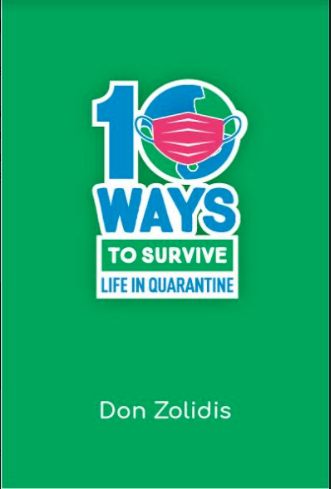
SSHS Director of Theatre Lesha Woodard noted that because of restrictions placed on schools due to COVID-19, the SSHS Wildcat Theatre group was unable to compete in the Bi-District UIL play competition. The suspension of “in person” schooling for the remainder of the school year also meant that the theatre students would miss out on their annual senior directed final performance this year.
“Luckily, playwright Don Zolidis anticipated problems like this and quickly created a play students could rehearse and perform online during the quarantine,” Woodard explained.
SSHS senior thespian officers Rachel Bramlett and Chase Berry directed Zolidis’s comedy 10 Ways to Survive Life in a Quarantine, which can be viewed starting Monday, May 18, at 7 p.m. online.
A link to the show will be posted on the SSHS Theatre Facebook and Instagram pages as well as on the groups; website: bit.ly/wildcattheatre. Viewers will be able to access this content for free any time that week.
“I am super proud of all these students who came together to create this performance. Their resilience, flexibility, hard work, and persistent spirits make being their teacher (even remotely) a joy and a source of pride,” said Woodard.
Performers include seniors Rachel Bramlett, Chase Berry, and Alex Walker; juniors Rorie Young, Hannah Shultz, Crystal Flores, Gregg English and Anthony Arroyo, Sophmores AllieGrace Woodard, Caleb Talmage, and Brandon Williams; and freshman Khira Young. The program was edited by AllieGrace Woodard.

Paris Junior College Workforce Students Return Monday to Finish Spring Semester
While most sophomores at Paris Junior College have finished their online classes and applied for graduation, students in some workforce programs will return on Monday, May 18 as part of a phased-in reopening process.
“Our faculty and students in spring semester workforce courses with hands-on labs will be allowed to return to campus to complete their courses,” said PJC President Dr. Pam Anglin. “The only people allowed on our campuses will be identified spring semester workforce students and their faculty along with essential employees that have been on campus since our COVID-19 closure. We will begin a phased in opening process with planned full operation by the fall semester.”
Entrance for classes in the Applied Sciences Building is on the east side of campus from Collegiate Drive by the Hunt Center. Entrance for the Workforce Training Center will be from Clarksville St., by Capizzis Restaurant on the north end of campus. There will be one entry into the building at both the PJC – Greenville and the PJC – Sulphur Springs Centers.
All vehicles must enter and exit in these locations. At the checkpoint, those entering must answer health questions and have their temperature taken, and their name be on a list of students and employees allowed on campus. Anyone coming on campus must wear a mask and practice appropriate hand sanitizing.
“This follows the Governor’s guidelines for Reopening Texas and the designated higher education checklist,” said Dr. Anglin.
June 1 marks the beginning of Summer I and Extended Terms. Academic classes for university transfer are online, and workforce programs will be hybrid – the classroom portion will start online, with students on campus later in the term to complete in-person lab work.
Summer workforce programs offering classes include accounting, air conditioning and refrigeration, business management, computer aided design and 3D printing – both standard and in the jewelry program, cybersecurity, computer networking, electrician, emergency medial services, gemology, medical records coding, mechatronics, nursing, office technology, radiology technology, surgical technology, watchmaking, and welding.
Students are encouraged to continue using online services if possible and may make virtual appointments with advisors. Should a problem arise that can’t be solved remotely, an appointment may be made for a student to come to campus.
Online registration is open for the summer and fall 2020 semesters for all PJC locations. Returning students may register online through their MyPJC account or with an advisor at [email protected]. New students should reach out to [email protected] or call 903-782-0425. Other important contacts are available at www.parisjc.edu/covid-19.

Paris Junior College — located in Paris, Texas, about 100 miles northeast of Dallas — has been a part of the Lamar County community since 1924.
Paris Junior College offers Associate in Arts, Associate in Science and Associate in Applied Science degrees, as well as Certificates of Proficiency in technical/workforce fields. The college has expanded its academic curriculum through the years to encourage associate degree and university transfer candidates. Since establishing its first vocational program — jewelry and watchmaking in 1942 — the college has been aggressive in adding technical/workforce programs that will benefit students entering the workforce.
The campus of 54 tree-shaded acres includes 20 major buildings and residence halls and provides students a unique and pleasant environment for learning.
Paris Junior College also operates centers in Sulphur Springs, Texas, and in Greenville, Texas.
Vision
To be the educational provider of choice for the region.
Mission
Paris Junior College is a comprehensive community college serving the region’s educational and training needs while strengthening the economic, social and cultural life of our diverse community.








